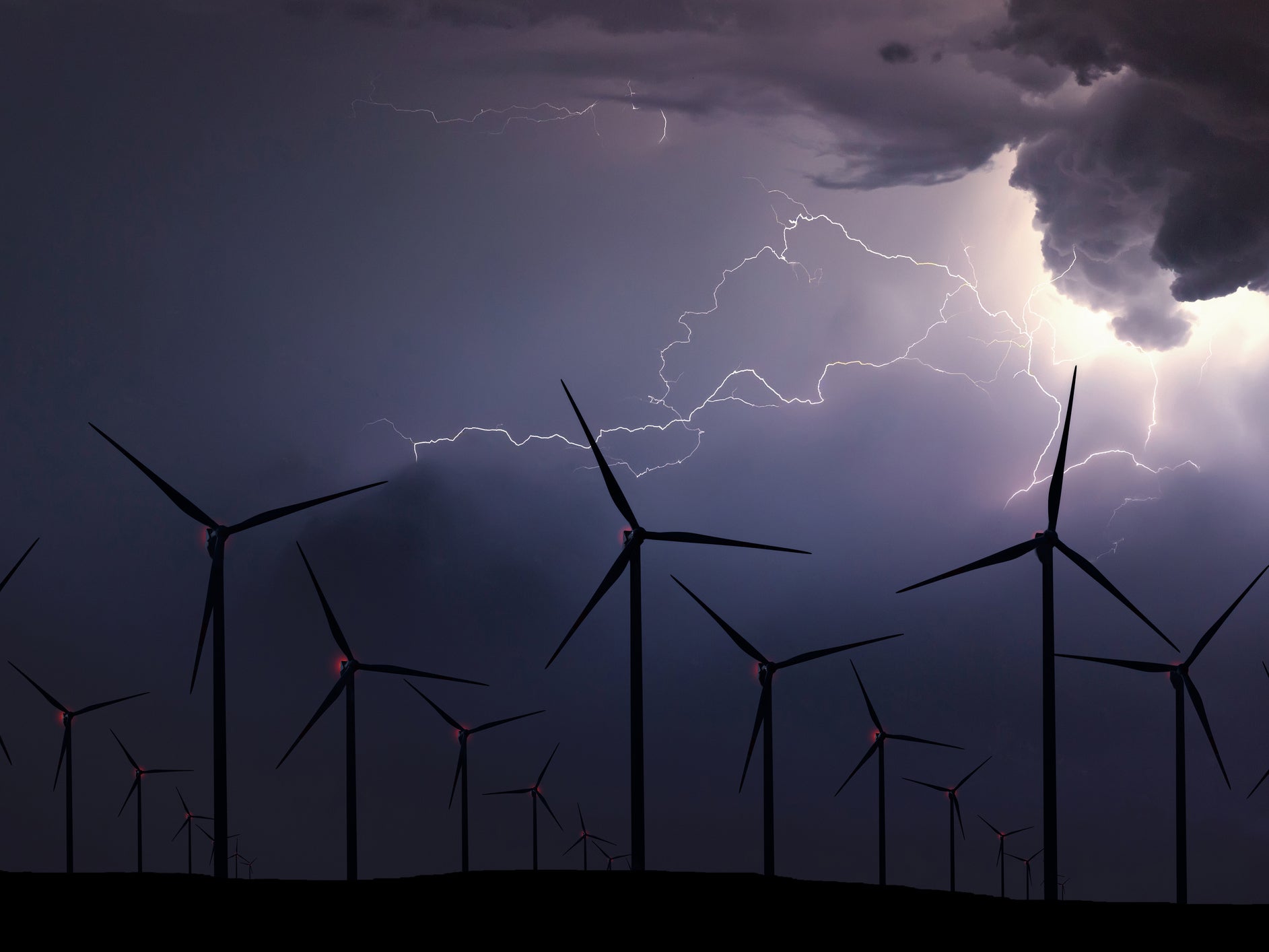Climate crisis: Renewable energy overtakes fossil fuels for first three months of the year
Windy winter storms and lower energy demands during coronavirus lockdown cause emissions from power production to tumble, writes Harry Cockburn


Renewable energy generated more than 40 per cent of Britain’s power during the first three months of the year – contributing more to the energy mix than fossil fuels during this period for the first time, analysis has revealed.
Severe winter storms during the wettest and windiest February since records began helped make it the first month on record when more electricity was produced by wind farms than gas-fired power stations across the country.
Record levels of wind power during the blustery conditions helped push down electricity generation from fossil fuels by 25 per cent compared with the same period last year.
Emissions per unit of power produced were also down 20 per cent on the first quarter of 2019.
Use of clean renewable energy is set to expand, with more large offshore wind farms due to come online this year.
But gas remains a major contributor to the UK’s electricity generation, providing 30.5 per cent of power between January and March, just edging ahead of wind power, which contributed a total of 30.6 per cent – the remaining 10 per cent of renewable power came from other sources including solar, biomass and hydro power.
During the windiest period in mid-February, wind power alone generated up to 42 per cent of the UK’s electricity, while gas dropped to 20 per cent, and nuclear added 15 per cent, biomass 5 per cent and coal 4 per cent.
Analysis by academics from Imperial College London for Drax Electric Insights reveals the lockdown due to coronavirus also saw energy demand fall by as much as 13 per cent by late March.
The shuttering of businesses, offices and schools, alongside reduced levels of manufacturing and a reduction in electric rail services led to weekday electricity demand falling to its lowest levels since 1982.
Although domestic power use increased due to people being at home in the day, it is “like living through a month of Sundays” for weekday power demand, while weekends have seen even less electricity needed on the grid, the study said.
Overall emissions from British power production have fallen by 35 per cent on the same period last year, the study found.
While other studies indicate overall use of fossil fuels is expected to surge as restrictions on freedoms come to an end, the analysis suggests some of the changes within power generation could continue for some time.
The researchers said with “even a small share of the population continuing to work from home on some days, there could be a lasting impact on electricity demand for years to come”.
Meanwhile further improvements to the grid are on course. There are just three coal-fired power plants left in the UK, with the Drax coal power station in Yorkshire due to close in March 2021 and indications the others could shut before the government’s 2024 deadline.
35%
Amount emissions from British power production have fallen by compared with the same period last year
Britain is currently in a record coal-free run of more than 40 days.
Iain Staffell, of Imperial College London and lead author of the quarterly Electric Insights reports, said: “Britain’s electricity system is under pressure like never before, with both the country’s weather getting more extreme and a global pandemic testing its resolve.
“So far in 2020 we’ve seen companies reducing their demand for electricity to help keep the grid stable when supply from wind power rapidly decreased, and then the Covid-19 lockdown caused many businesses to shut up shop, reducing electricity demand and creating new challenges with oversupply of power.
“Having flexibility within the power system at these critical moments is crucial to keeping Britain’s lights on."
Join our commenting forum
Join thought-provoking conversations, follow other Independent readers and see their replies
Comments